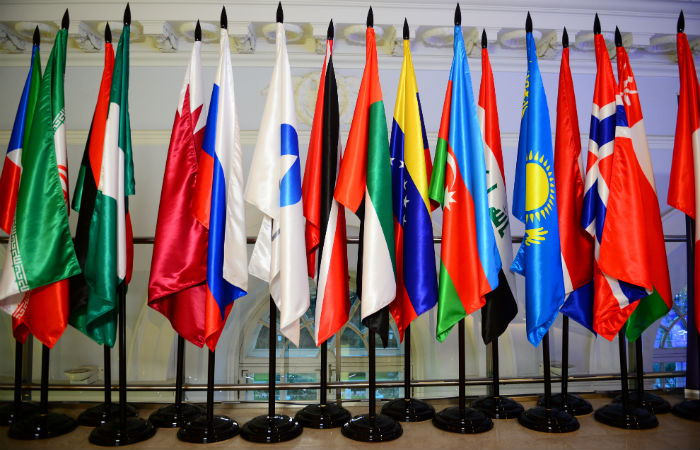Electric Vehicles: Manufacturing and Infrastructure

KEY CONCLUSIONS
The Russian power network is ready to support a large number of electric vehicles, but the issue of their safety remains
“The Russian Federation’s
energy system is one of the most reliable, technologically advanced power
systems in the world. <...> The increase in consumption shows that our
economy is growing, our services are growing. <...> If we’re talking
about the energy system, I think our networks and our generation, and the global
management of all these processes are already at such a level that
fundamentally deep changes are not required,” said Anton Kolyhalov, Director of
the Digital Transformation Department, Ministry of Energy of the Russian Federation.
“If you look at OPEC’s global
forecast for the oil markets, you will see that... internal combustion engines
will stay with us. Who can afford electric vehicles at the moment? They are often
40–50% more expensive than conventional diesel-powered cars.
Can you force companies to change their fleets? The question will be how safe
the process of decommissioning electric vehicles is – this is still debatable. Too many electric vehicles have combusted
while in use,” said Karin Kneissl, Head, Center G.O.R.K.I. (Geopolitical
Observatory on Key Issues in Russia); Minister of Foreign Affairs of the
Republic of Austria (2017–2019).
PROBLEM
Creating charging
stations for electric vehicles is unprofitable because Russia has few electric cars
“We met with colleagues from
Yandex – they have colossal analytical capabilities. They
calculated how many electric vehicles there are in Russia now: 32,000.
<...> The network load of the Rosseti group of companies is now 2%. The
average cost of a kilowatt-hour is 18 roubles. <...> This is an extremely
unprofitable project for us. In order for the plant to pay for itself in 5–7 years, one kilowatt-hour should cost 300 roubles. It
is clear that then no one will charge. <...> Our charging stations have
low utilization: there are simply not enough electric vehicles,” said Konstantin
Kravchenko, Deputy General Director for Digital Transformation, Rosseti.
“For this year, compared to
2022, we saw 77% growth in the number of electric vehicles in Russia, i.e. 30,000
– 0.1% of the total number. According to various
forecasts, by 2030 [there will be 1.5 million electric vehicles in Russia – Ed.]. <...> Even with such a large number of
cars, refuelling becomes profitable. There are now 4,300 charging stations, [and
their number will increase – Ed.] up to 72,000,”
said Alexander Khvalko, Director, Digital Energy Association, Deputy General
Director and Sales Director, Rosenergoatom.
SOLUTION
Creating
infrastructure for electric vehicles and a single operator for network charging
stations
“The user behaviour pattern has
to change. Currently, it’s hard
to imagine that a person will arrive and that for 51 minutes they’ll sit and
charge. It’s probably possible on highways where one can, for example, put the
car on charge and have a cup of coffee and a break. If I’m in the city and I
need to recharge, even for 30 minutes, not until I have a full battery [then probably
not – Ed.]. You need to be able to charge in 8–10 minutes. <...> Alternatively,
there are what are known as slow charging stations, using an alternating
current, in places where there is mass parking. <...> There is a problem
with the cost of technical connection. This issue is mainly related to the
historical centres of large cities, where there are paving stones and
horizontal drilling is required. Of course, this kills the whole economy. There
should be some kind of state subsidy programme. <...> If we are talking
about network development, there should probably be a network operator that
will look at the network of charging stations in terms of understanding where
these stations should be placed,” said Konstantin Kravchenko, Deputy Director
General for Digital Transformation, Rosseti.
“The generating part of our power system, in my understanding, is more
prepared [for the sudden appearance of a large number of electric vehicles – Ed.] than the network part. Simply by virtue of the
fact that we were pulling megawatt cables for our ships [water buses – Ed.], for charging stations, to the historic centre
of the city. The problem was not that we didn’t have these megawatts, but that
we had to pull them into the historic centre of Moscow. A number of large
cities – St. Petersburg, Nizhny Novgorod, Kazan – have similar difficulties. The question is not that we
don’t have the capacity to provide for a million electric vehicles, the issue
is about the right organization, regulation by the state, and the regulator,
who is responsible for the process,” said Nikolay Pozhidaev, President,
Chairman of the Management Board, Sitronics.
“What do we need to boost
electric transportation? The most important thing is to create a culture in
which the electric car is a way of life. [We need – Ed.] popularization, the environment, usability, infrastructure,
standards, rules, and a digital ecosystem for the market. In fact, this
[electric transportation – Ed.] is the
future,” said Alexander Khvalko, Director, Digital Energy Association, Deputy
General Director and Sales Director, Rosenergoatom.
For more information, visit
the Roscongress Foundation’s Information and Analytical System at roscongress.org/en.
The Russian Energy Week International Forum is a key global platform for discussing current trends in the development of the modern fuel and energy sector. This event is traditionally held at the highest level, featuring the participation of leaders from the largest companies in the energy industry. In 2022, more than 70 events, with the involvement of over 270 speakers, were held as part of REW. The Forum attracted over 3,000 participants and media representatives from Russia, as well as 83 foreign countries and territories. The Forum is organized by the Roscongress Foundation and the Ministry of Energy of the Russian Federation, with the support of the Moscow City Government.
Official website of REW: rusenergyweek.com. For news about the event and the industry, please follow the official REW page on VK.





